Barnacle Goose
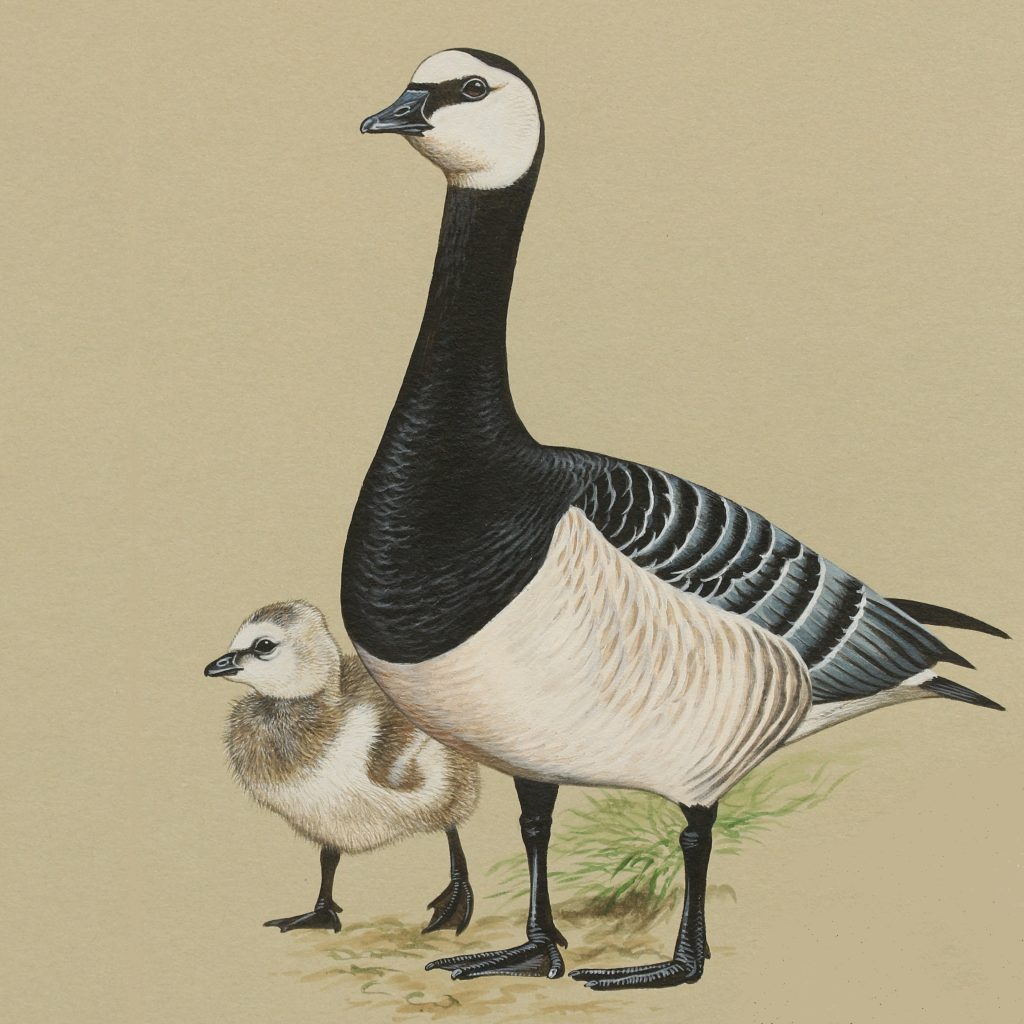
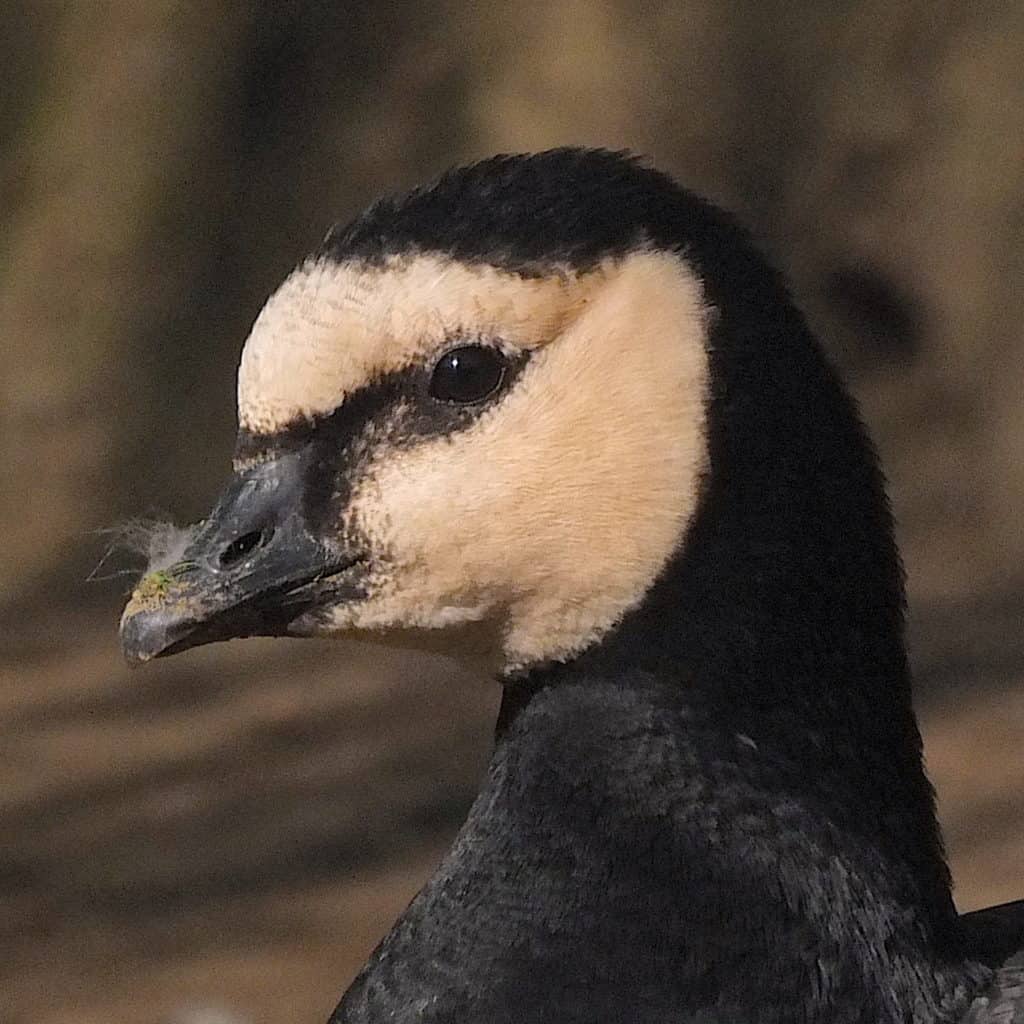
Branta leucopsis
Barnacle Geese, with their striking looks, are popular in wildfowl collections. They are distinguished by their white face, black head, neck and breast, together with pale belly. All geese need adequate grazing, but Barnacle Geese will adapt to smaller enclosures than some.
They are highly vocal, with a yapping note. Although easily tamed, they can be more liable to panic than most geese.
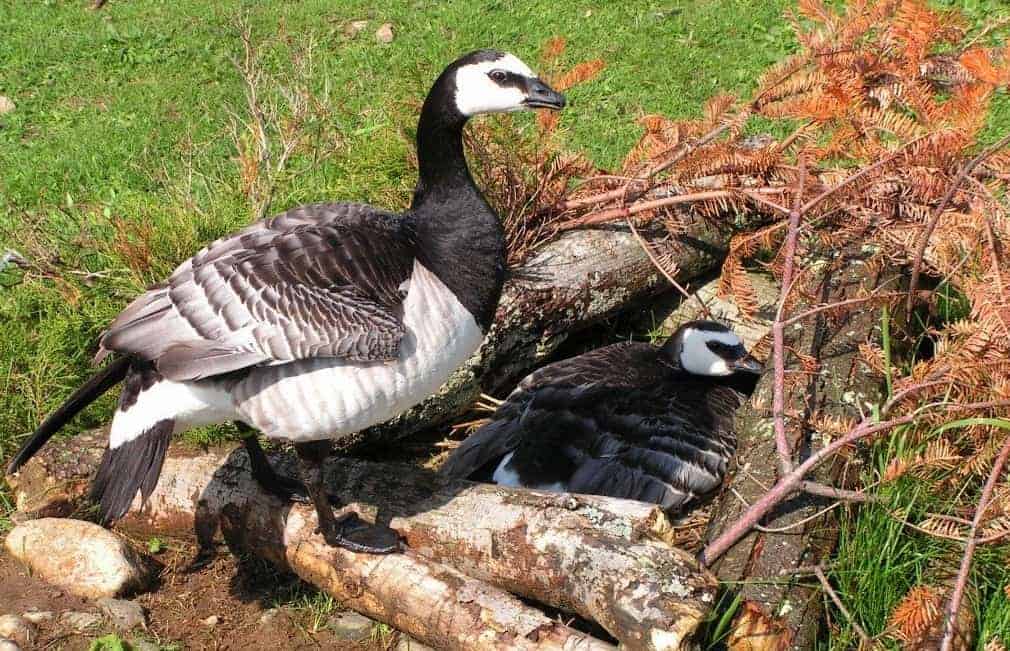
In the wild, Barnacle Geese are often very active at night, continuing to feed in the dark. Their habitat is tidal flats, coastal marshes and adjoining grazing areas. As a defence against predators, they frequently breed in colonies, selecting inaccessible slopes and cliff tops as their nesting ground. The resilience of a Barnacle Gosling is extraordinary.
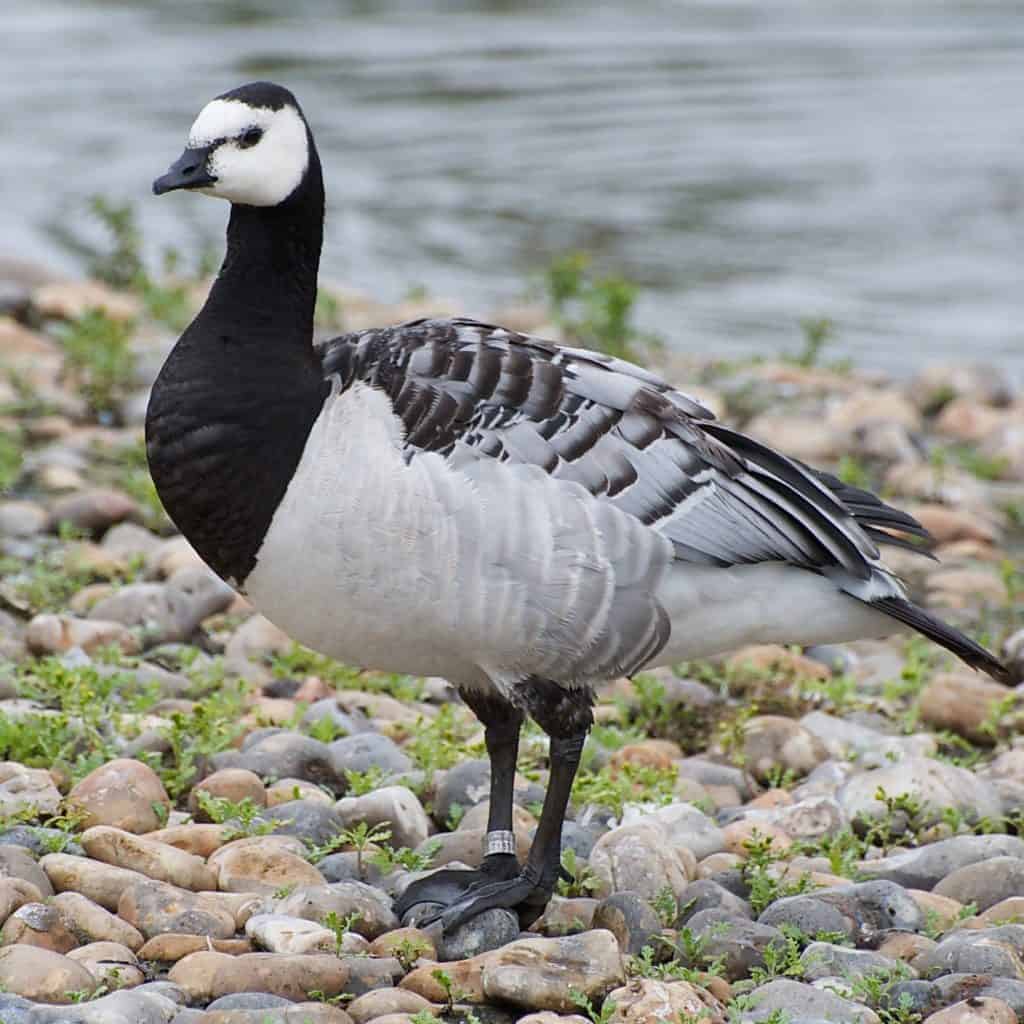
This species is Amber-listed in Britain as 70–80% of our wintering population is found at 10 or fewer sites, so it is considered localised.
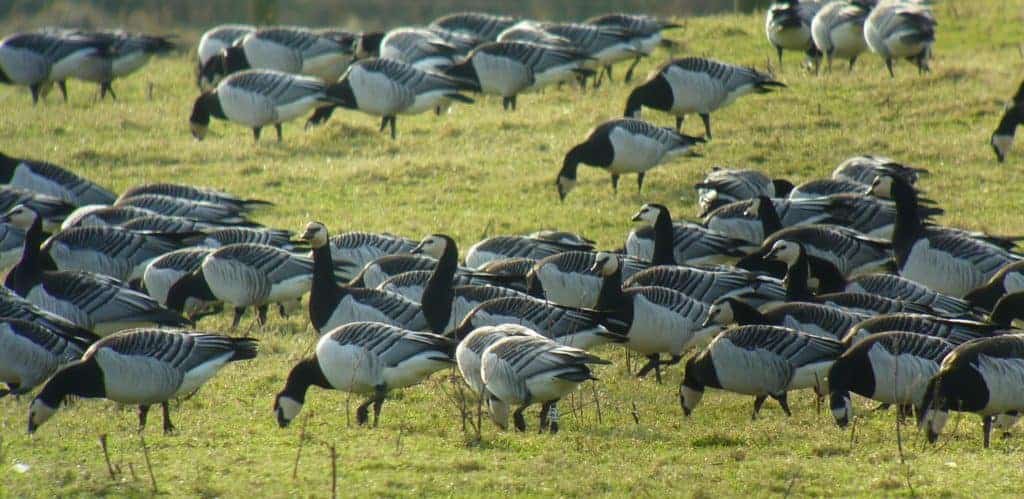
Barnacle Geese breed readily from their third year, laying clutches of 4–6 eggs with an incubation period of 25 days.
FURTHER READING
Ottenburghs, J., van Hooft, P., van Wieren, S.E. et al. 2006. Frontiers in Zoology. Hybridization in geese: a review.